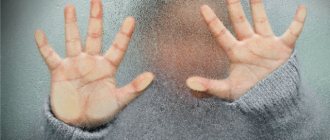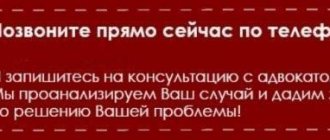Good day to all!
Decriminalization of battery
, namely the transfer of an act from a criminal to an administratively punishable one, has significantly simplified the procedure for bringing to justice for domestic violence. In particular, the article “Beatings” began to be applied to parents who caused pain to their child.
We are talking about slaps, slaps, pushes that do not cause harm to health and do not leave a mark.
Nowadays, for better or worse, the law makes it easy to punish parents for spanking and slapping. For this, a police report and a certificate from the hospital are sufficient.
Example
In Tver, a mother was sentenced to 60 hours of compulsory labor because she rashly pushed her capricious child.
In legal language, the story goes like this: a woman, out of a personal hostile relationship that arose due to the behavior of her son, who was capricious, pushed a young child in the back, causing the latter to experience physical pain, fall and cry.
The Tver District Court found the woman guilty of committing an administrative offense under the article “Battery”.
Corpus delicti
Depending on the degree of beating and the severity of health damage, the crime will be classified differently. Thus, the article of the Criminal Code of the Russian Federation for beating a minor child, which is used to impose punishment, can vary significantly.
According to legal theory, the corpus delicti consists of:
- The subject of the crime is the person who committed the crime, as well as his special characteristics (position or position due to which the victim becomes dependent on him).
- The object of the crime is not only the personality of the victim, but also the social relations that the criminal encroaches on.
- The objective side is the action/inaction, the connection between them and the consequence, as well as the weapon and method of committing the crime.
- The subjective side includes signs of guilt (intention/negligence), the purpose and motive of the crime, as well as the emotional state of the criminal.
The subject of a crime is considered to be a mentally healthy, sane person who has reached the age of 16 (if a crime is charged under Articles 111-112 of the Criminal Code of Russia - grievous bodily harm, then liability begins at the age of 14).
That is, you do not have to be an adult to receive the proper sentence. All crimes related to battery are classified as crimes against life and health, therefore, in this case, regardless of the classification of the crime under a specific article, the object is health.
The objective side is unlawful infliction of harm to health. Harm may involve disruption of the integrity of organs or their physiological functions. The severity of the harm is determined by an expert examination. Signs of violations are listed in the articles of the Criminal Code, which makes it possible to divide them by severity.
The subjective side is characterized by intent. In other words, the person understood that certain consequences would occur as a result of his actions and desired them to occur. We are talking about unspecified intent, since in most cases the offender has no idea what kind of damage may occur as a result of the beating. That is, he does not understand how much he needs to hit to cause a certain amount of damage . The goals and motive of the attacker matter in aggravating the responsibility. All this is clarified during the investigation.
Causing harm by negligence is a separate article of the Criminal Code and has nothing to do with beating.
How should eyewitnesses react to child beatings?
How to react if you become an eyewitness to children being beaten during the so-called educational process: spankings, slaps on the head, and the like? There are two diametrically opposed opinions on this matter:
- Keep out. If beating children does not cause harm to the child’s health and does not pose a danger, it is a family matter.
- Be sure to respond, stop the illegal actions taking place, and report to the police or guardianship authority.
How do you feel about beatings of children for so-called educational purposes and how do you react when you become eyewitnesses to them? Read more ➤
Peculiarities of beating children
Despite the fact that everyone understands perfectly well that it is impossible to strike an adult with impunity, many perhaps forget that a child is the same person, he is just still small.
Situations involving beatings of children arise very often, and many parents believe that punishing a child for a bad grade is not considered beating at all. For many, this is a unique method of education. However, the law protects all citizens: both big and small, and it is impossible to beat a child with impunity. But the problem is that often a young child himself cannot report that he is being beaten at home. He just doesn't understand that his parents are breaking the law.
As a rule, children are beaten in dysfunctional families, and they are already under the control of law enforcement agencies. When a child is reported to have been beaten, an inspection and inquiry is carried out in order to confirm or refute this fact.
The situation when a father hits a child, and the mother is afraid to report to the police because there are no witnesses, is very common. But for a statement, only her words and a certificate of beating are enough.
Where to contact
If we are talking about domestic violence and someone knows for sure that a child is being beaten and humiliated in every possible way, then, of course, it is necessary to report it to the police. Anyone can do this, but do not forget that such a statement requires serious reasons. And that there is Article 306 of the Criminal Code of the Russian Federation, which provides for liability for knowingly false denunciation.
In a situation where there is a real threat to the life or health of a child, it is simply necessary to report to the police.
Quite a difficult situation with school fights. In most cases, if we are talking about an isolated skirmish in which neither side was seriously injured, then it is enough to confine ourselves to the school administration. Fighters are registered at school and their behavior is monitored. A school psychologist also works with children, explaining that just one blow can ruin a life, and a teenager can be sent to prison
Contacting the police in this case is not always reasonable, since a more detailed analysis of what happened often shows that the victim himself provoked the fight and is no less to blame than the offender. For most crimes related to battery and bodily harm, liability begins at the age of 16 . This rule also applies in Belarus and Ukraine.
But if there is regular beating of a child, which is associated with injuries, then it is necessary to contact the police. If the student is under 16 years old, then no criminal case will be initiated, but the case will be transferred to the commission on juvenile affairs. The staff of this institution monitor their charges very closely, and in case of repeated cases, the teenager will be sent to a special educational institution. This is enshrined in Art. 87 of the Criminal Code of the Russian Federation.
In any case, when a child is beaten, it is necessary to record the beatings in order to have evidence to initiate a case.
Qualifying features
In order to clearly differentiate a crime, it is important to understand that the main criterion is:
- frequency of beatings;
- harm caused to the victim.
According to the Criminal Code, there are 4 degrees of harm:
- Beatings are actions that caused physical pain, but did not result in health problems or loss of ability to work. This is a one-time offense, since systematic beating is qualified under Art. 117 of the Criminal Code - Torture.
- Minor harm to health (Article 115 of the Criminal Code) implies a slight loss of ability to work and health problems.
- Harm of moderate severity (Article 112 of the Criminal Code of the Russian Federation) is not life-threatening, but causes long-term damage to health and loss of ability to work by less than 1/3.
- Grave harm (Article 111 of the Criminal Code of the Russian Federation) – life-threatening or leading to the loss of an organ or the loss of any human organ’s functions, including permanent disfigurement.
The degree of harm is determined only after a forensic medical examination.
Speaking about beating children, it is important to take into account that one of the signs aggravating responsibility in Art. 111 and 112 of the Criminal Code of the Russian Federation, is causing harm to a minor or someone in a helpless state. Thus, beating a minor will be punished more severely than beating an adult.
Parents beat their child, what should I do?
In Russia, 40% of serious violent crimes are committed in families. Children also suffer. They are killed, raped, beaten. As a rule, the torment of a child and the inappropriate behavior of fathers and mothers are noticeable to neighbors, but not every one of them knows where to turn for help.
The Criminal Code does not provide for liability for failure to report cases of beating of children to law enforcement agencies; this is a matter of conscience.
Caring people have many ways to protect a child within the framework of the law. To do this, there is no need to even enter into direct conflict with the offenders. There are structures that are obliged to ensure the safety of a child upon learning that he is being beaten.
What responsibilities are provided?
Today there is no separate article that would provide punishment for beating. The fact is that several articles of the Criminal Code, as well as an article of the Code of Administrative Offenses, fall under this concept.
The easiest responsibility arises within the administrative framework. In this case we are talking about beatings, that is, in an isolated case of causing pain, without aggravating circumstances. In accordance with Art. 6.1.1. Code of Administrative Offenses of the Russian Federation:
- fine - 5,000-30,000 rubles;
- adm. arrest - from 10 to 15 days;
- compulsory work - from 60 to 120 hours.
The basis for qualifying an offense under the Administrative Code is the absence of hooligan motives, national or political motives.
Criminal liability for crimes against health varies according to a number of mitigating and aggravating circumstances. The table indicates the maximum measure of liability, taking into account the aggravating circumstance (the victim is a child). So, the criminal faces the following.
| Crime | Beatings | Torture | Minor harm to health | Moderate health damage | Serious harm to health |
| Punishment | |||||
| Mandatory work | Up to 300 hours | Up to 480 hours | |||
| Correctional work | Up to 1 year | Up to 1 year | |||
| Restriction of freedom | Up to 2 years. | Up to 3 years. | Up to 3 years. | ||
| Forced labor | Up to 2 years. | Up to 3 years. | Up to 3 years. | ||
| Arrest | Up to 6 months | Up to 6 months | Up to 6 months | ||
| Deprivation of liberty | Up to 2 years. | 3-7 years. | Up to 2 years. | Up to 5 years. | Up to 10 years. |
You need to know your rights and be able to defend them. Especially when it comes to children. If a child is threatened by a stranger or a friend, this is a cause for alarm. You can file a police report even if the attacker is unknown. The job of the police is to find him, and the citizen only needs to report and subsequently testify.
Diverse reviews
Let's listen to the opinions of those who have had personal experience with the topic of childhood violence in the family by their father:
- Irina is 32 years old and has an 11-year-old son. She left her husband because she believes that if you raise your hand once, there will be more. She considers herself responsible for the life and health of the child, and is sure that childhood should be happy. Otherwise, when the son becomes an adult, he definitely won’t say thank you;
- Raisa is 40 years old, has two children, 8 and 12 years old. Three years ago, my husband and I turned to a family psychologist. After two months of joint sessions, the husband became softer, the beatings stopped. The family was saved;
- Olga is 29 years old and has a little daughter. As a child, she herself was subjected to parental beating. He says that childhood trauma makes itself felt years later. I am sure that she will not allow anyone to beat her children;
- Igor is 35 years old and has twin boys. Periodically lets go of his hands, which he considers the norm. He does not realize that he is breaking the law and breaking the twins’ psyche;
- Andrey, 44 years old, has an adult daughter. He has never resorted to forceful methods, but he does not consider this unacceptable. He says that if you get divorced because of every slap in the face, there will be no families left at all. I am sure that all problems are resolved through negotiations and the help of the spouse - after all, it is unknown why a father beats his child. Perhaps he has internal psychological barriers or personal trauma. The best solution is the help of a specialist.
In which families are children exposed to violence?
Statistics show that children whose parents actively drink alcohol are most susceptible to domestic violence. It is worth noting that violence against a child while under the influence of alcohol or drugs is an aggravating factor. Public disclosure of such facts often leads to the deprivation of parental rights of persons who violate the rights of a child under the influence of alcohol or drugs.
Cases of child abuse are more common in low-income families. When parents are unable to make ends meet, they often take out negative emotions on their children. Children from prosperous families are more often exposed to violence from adults at school, where teachers often go beyond what is permitted.
Teachers' responsibility for beating a child
Education workers also do not have the right to cause moral or physical harm to a child. A teacher may not insult, hit or humiliate a minor. Nevertheless, quite often teachers literally bully children. This phenomenon is more relevant for schools whose staff consists of workers of the old Soviet school.
The law protects the interests of children while at school. If a child has been subjected to mental or physical abuse by school staff, parents have the right to file a complaint with local education authorities. The following measures may be taken against a teacher or other school employee:
- reprimand, demotion;
- dismissal;
- deprivation or restriction of freedom.







